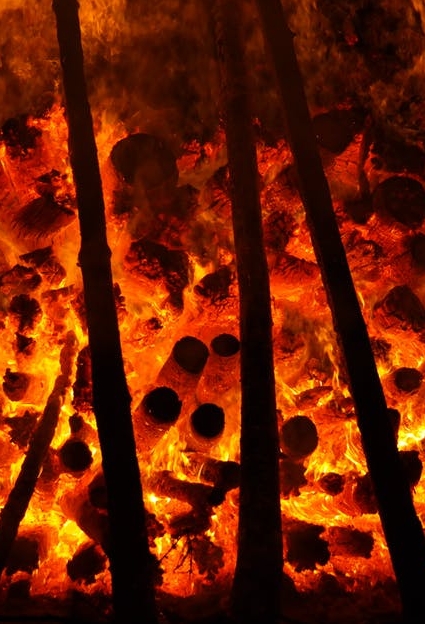

A forest fire at Kurangani hill in the Bodi hills of Theni district took the lives of 11 trekkers and left several others in the group with serious burns and injuries, and news of this hit us like a heat wave. When the 27-member team from Chennai Trekking Club, ventured on a two-day trek at Kurangani Hills on March 9, they didn’t know what was waiting for them on the slopes.
As soon as news of the tragic accident started its rounds on social media, the Kerala Forest Department imposed a temporary ban on forest trekking and restricted entry into wildlife sanctuaries. In trekking, or any other similar adventurous endeavours, some people look for adventure, but some people prefer to go beyond that in the search to find themselves. The Theni accident and consequent events are demoralizing for all those who love wilderness.
In the 2007 movie Into the Wild directed by Sean Penn, the protagonist is an avid wilderness lover who says, “I'm gonna be all the way out there, all the way f*****g out there... no f***g watch, no map, no axe, no nothing.. Just be out there... In the wild.” So is the spirit of every adventurer and it burns alive sans nationalities, geography, race, or gender.
But, the tragic plight of the Theni trekking team raises a few questions about the divide between the fact and fiction in wanderlust, a term very fashionable after the 2000s. With the proliferation of social media groups and pages, and sharing and promotion user-generated content about travel experiences and exotic and adventurous locations, youngsters have started backpacking quite often. Just how organised and professional are our support systems like Forest Departments, crisis management and rescue operations, etc., after an unfortunate incident like Theni forest fire?
First and foremost, both the forest and the fire are a part of the same ecosystem. Forest fire is a common phenomenon in the forests of the Southern Hemisphere. Many nations in this region, who face the threat of annual breakouts of deadly fires adopt proper control measures, supported by scientific and technological means. As the climate change raises temperatures worldwide, forest fires are going to be frequent phenomena we have to deal with. Even though there is a system in place to monitor forest fires real-time with the help of satellite inputs from ISRO, it failed miserably in the case of Theni.
To make things worse, various reports suggest that there was no action plan in case of a widespread forest fire, though the region falls under a fire prone area. Helicopter or drone surveillance was also not available for the officers at the time of the fire, not to mention lack of mock drills and awareness. Some reports also suggest that the 29-member team entered the forest illegally. As trekking and wilderness adventure becomes more and more popular among youth, there are lesser guidelines and information available online and offline about the do’s and don’t's. The boundaries of our forests are often laid open and anyone can step in at a whim, without any preparation.
The most unfortunate thing in this issue is the new trekking ban, which is basically just issuing an order and pretending everything is back to normal. The increasing threat of forest fire in cities near the forest remains, and the lives of those who step into the forests uninformed are in grave danger. This threat cannot be wiped out with a ban on paper.
Having said that, let’s pay our tribute to the 11 lost souls and bow to their spirit of adventure. Forest fires are as much part of the forest as its exotic wilderness, so is the call of the wilderness for the daredevils. All we need is an administrative system that functions in accordance with the adventurous spirit of the nature, and the last thing we expect is the ban on paper.
Behindwoods is not responsible for the views of columnists.

OTHER LATEST BEHINDWOODS COLUMNS
RAGESH DIPU'S OTHER COLUMNS
- Stalkers in and out of cinema; what’s the reality?
- Arya's Enga Veetu Mapillai: A reality check on the reality shows
- The Politics of Open Breastfeeding
- The Blackness of Kaala and Portrait of the Superstar as an Actor
- Sridevi, the first heroine to crack the male supremacy in Indian Cinema
- Chekka Chivantha Vaanam - Why we yearn for a Mani Ratnam film



